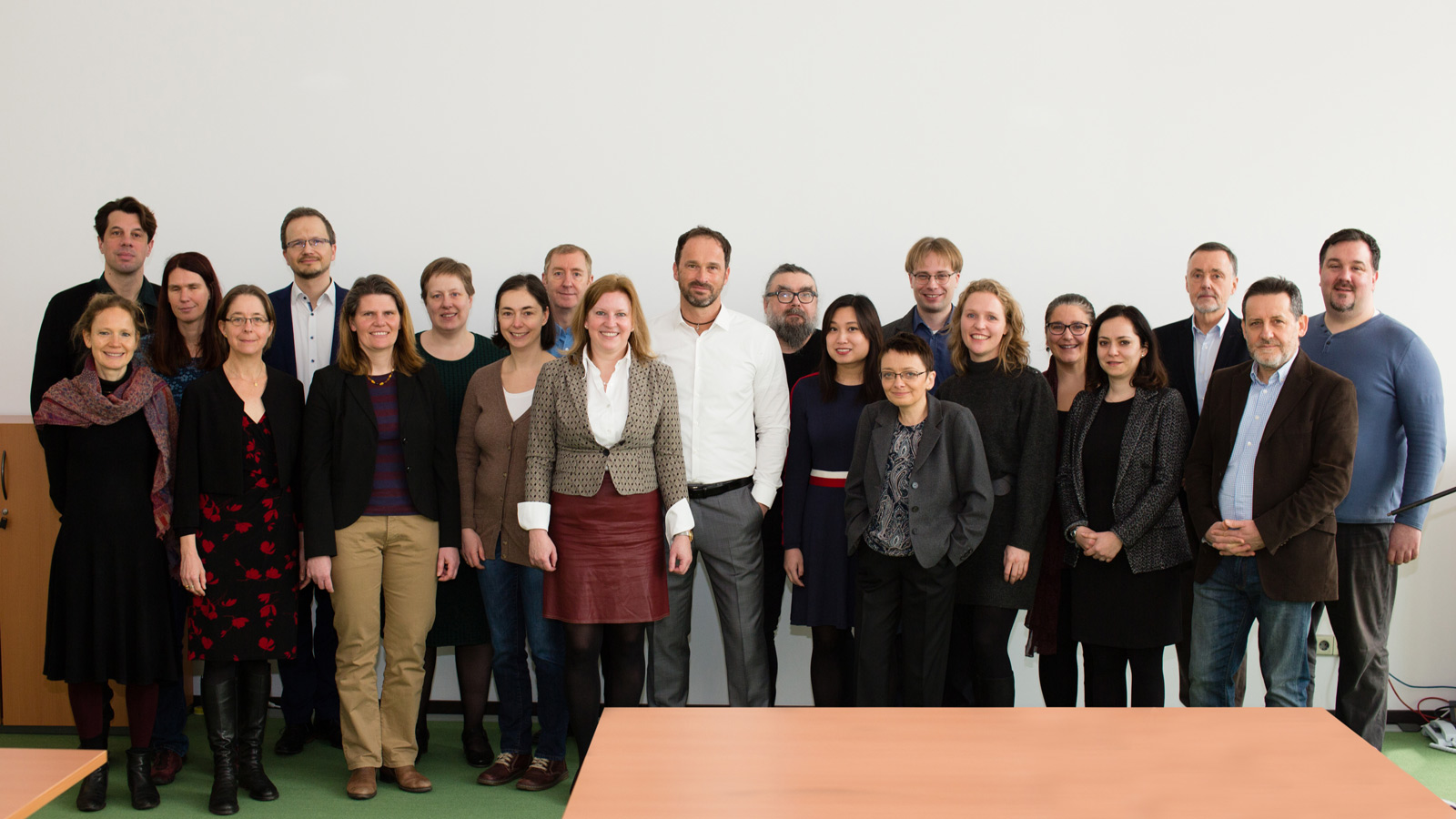Closely interlinked interdisciplinary network for research into hereditary movement disorders
The research group “ProtectMove – reduced penetrance in hereditary movement disorders: Elucidation of Mechanisms of Endogenous Disease Protection” at the University of Lübeck is funded by the German Research Foundation (DFG) for a further three years. This decision was made by the Joint Committee of the DFG at its meeting during the Annual General Meeting on 1 July 2020. The spokesperson of the Research Unit, which has been in existence since 2016, is Prof. Dr. Christine Klein, Head of the University's Institute of Neurogenetics.
“The 21 project leaders are extremely pleased about the funding of the DFG Research Unit FOR 2488 ‘ProtectMove' for another three years,” said Prof. Christine Klein on the occasion of the grant approval. “In the first funding period, exciting results have already been achieved on the important question of which factors can protect mutation carriers from developing a hereditary movement disorder in the first place and, if so, when and how severe. The Research Unit is grateful that the generous DFG funding of almost four million euros will enable it to continue to dedicate itself to this central topic of personalised medicine and will use numerous new, innovative methods to do so. ProtectMove has already become a ‘magnet' for scientists, students and cooperation partners from all over the world who have provided the consortium with thousands of data sets and biosamples”.
In view of the surprisingly large number of carriers of supposedly pathogenic mutations who do not develop the disease in question, the importance of reduced penetrance seems to have been considerably underestimated. Nevertheless, it is a central question not only in the field of hereditary movement disorders, but also in the entire field of medical genetics and personalized medicine. In addition, prevention concepts to protect against diseases have been largely neglected in genomic research.
In the first funding period, the “ProtectMove” research group therefore formed a closely interlinked, interdisciplinary network and within three years established itself as a national and international hub for research into the reduced penetrance of movement disorders. It has attracted numerous new staff, students, cohorts, datasets and biomaterials and has established a sustainable infrastructure ranging from innovative data concepts, new approaches in international team science to platforms for induced pluripotent stem cell technology (iPSC), genome editing and third-generation sequencing.
Projects in Lübeck, Bolzano, Kiel, Luxembourg and Essen
Of the project leaders, eleven are from Lübeck, four from the University of Bolzano's associated institute, three from Kiel, two from Luxembourg, including the bridge professor of the research group Anne Gruenewald, and one from Essen. Joanne Trinh and Hauke Busch are new in Lübeck.
The most important hypotheses of the first funding application were confirmed by a wealth of new findings: 1. reduced penetrance and variable expressivity seem to be a continuum across the manifestation and expression of diseases. 2. pathogenic variants in corresponding genes are more common in Parkinson's (PD) and dystonia patients than in control persons, but also occur in the latter with a remarkable frequency of 8 percent. 3. it is possible to identify strong and biologically plausible modifiers of penetrance and expression with a relatively small number of mutation carriers. Multivariate studies on both phenotypic and functional levels provide mechanistic insights into the modes of action involved. 4. currently discovered modifiers include nuclear genetic factors, the mitochondrial genome, gene-gene and gene-protein interactions and inflammatory responses. 5. these findings are beginning to have an impact on patient counselling and have translational potential for targeted treatment.
Research groups of the German Research Foundation enable scientists to address current and pressing issues in their fields and to establish innovative working directions. Clinical research groups are additionally characterized by the close connection between scientific and clinical work. In total, the DFG currently funds 160 Research Units, 13 Clinical Research Units and 17 Research Units.
ProtectMove: https://gepris.dfg.de/gepris/projekt/287074911
Source: University of Lübeck

